As Search Engine Optimization heads from “strings to things”, it is becoming more important for SEOs to understand the difference between Topics and Search Terms. Fortunately, Google has made this very easy to check up in Google Trends. As Search Engine Optimizers build out their “Entity SEO Strategy”, they need to define the difference. This post shows you how.
Google Trends shows Topics, Search Terms and Entity definitions
Whilst doing some research on Entity Search and to optimize better for Entity SEO, I found myself returning to Google Trends. I was considering the sometimes subtle difference between a “keyword” and a “thing”. It turns out that Google Trends is showing us exactly what the difference is, phrase by phrase. Like autosuggest in the main search on Google, trends also uses suggest… I started with the generic phrase “Internet Marketing”. Until I type the very last letter, Google does not see a perfect match with a specific topic, Although it has some ideas:

By the time I have typed in the whole phrase, however, Google is pretty sure it knows what topics you want answers about:

This is potentially very valuable as a quick way to look at the difference between search terms and concepts. It turns out that there appears to be a direct relationship between Google saying a phrase is a “topic” in Google Trends and the Google Knowledge Box. Here are three examples to prove it (including one I am gutted, but not surprised to see.)
Bill Hartzer’s Topic
When you type in Bill; Hartzer, Google associates him as an Entity in the class of Internet Marketers
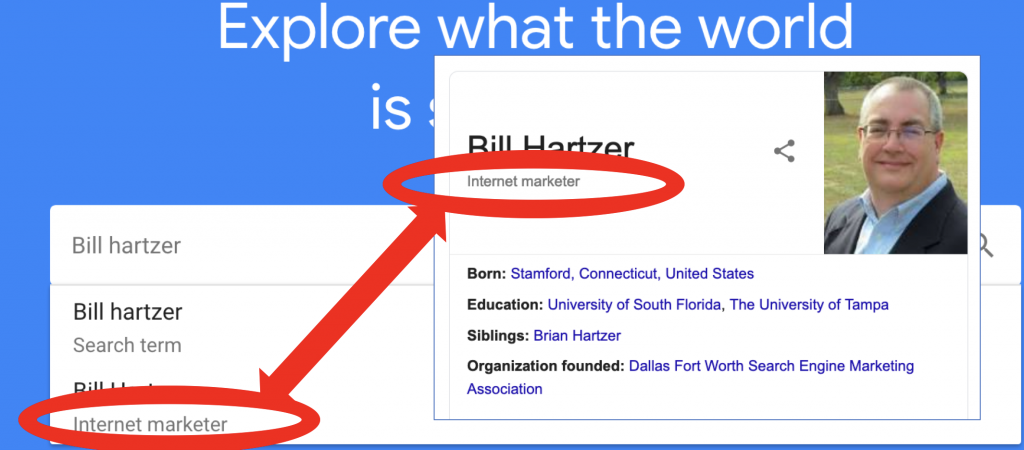
Bill Slawski’s Topic
When you type in Bill Slawski, Google associates him as an Entity in the class on American Consultants
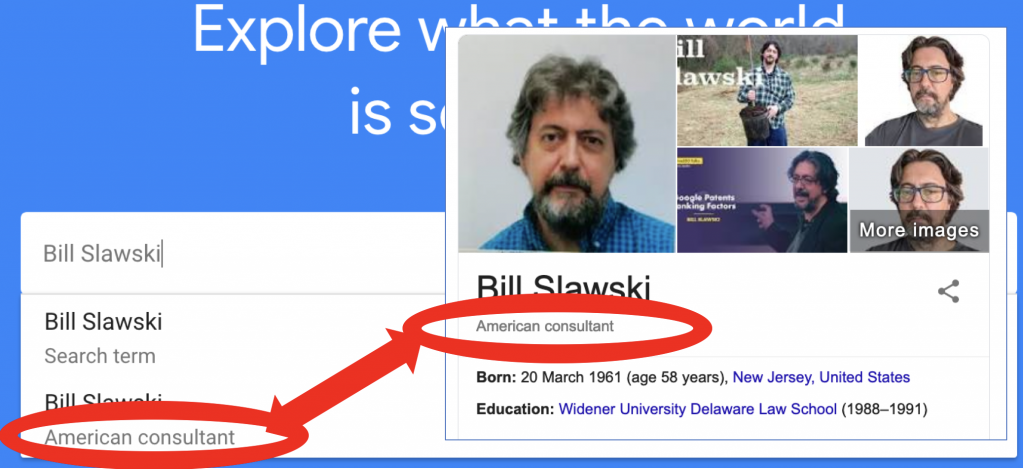
Dixon Jones’ Topic
Google treats the phrase “Dixon Jones” differently. IMHO, “Dixon Jones” is an Internet Marketer (or is a
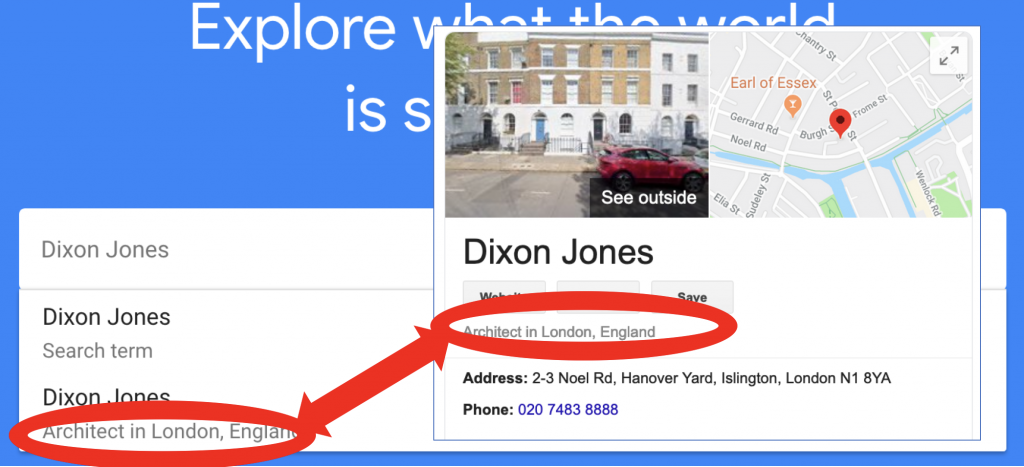
I am just returning to this blog after a decade or so focussing on my Majestic role. This is very frustrating for me to see and shows that my site needs work. I could make the excuse that these guys are bigger than me, but that argument does not hold water, because (at the time of writing) there IS NO TOPIC in Google’s Knowledge Graph that associates Dixon Jones as a person in the Internet Marketer topic. If there was, I would be below these guys, not missing altogether.
Tips to use Google Trends for Enti ty SEO
Google Trends is often overlooked as an SEO tool. But it is a Free SEO Tool and a great place to start a digital marketing plan. Here are some tips:
Tip 1: Use to find Entities
Enter any search term to work out what topics you should be writing about that are associated with that term
Tip 2: Use to find Trends
Look at whether interest in that topic is increasing or decreasing over time. Clearly, if the topic is not increasing in importance, then you will have more of a challenge in your business.
Tip 3: Compare Niches
You can compare up to 5 different things against each other in Google trends. This is great to resolve an argument about which term/topic/place you should be working on.
Tip 4: Select uniform data types
look at this example and see just how imp
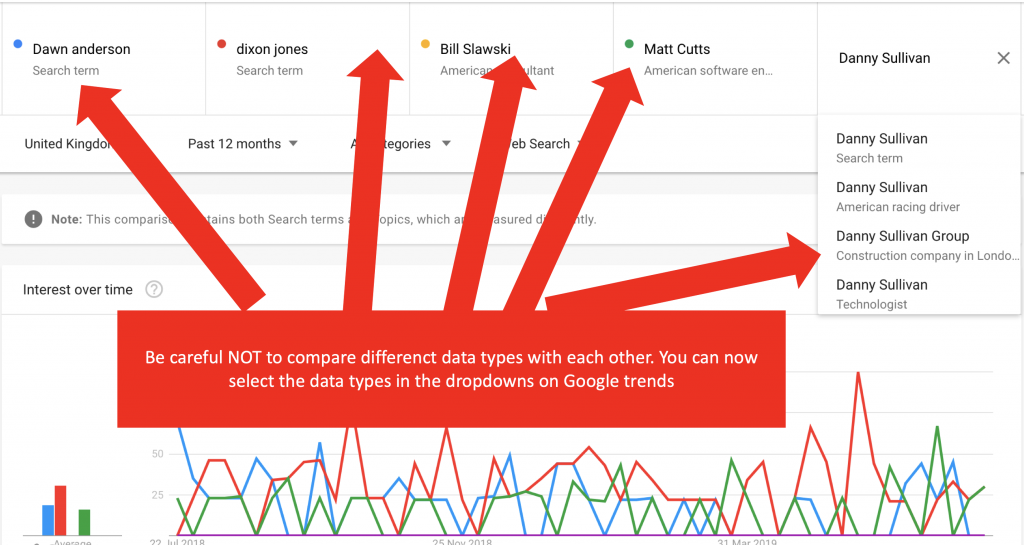
Tip 5: Use for Disambiguation
A phrase can mean many things. Google may have entities for some of the meanings, but not others. You can see this in the example shown below:
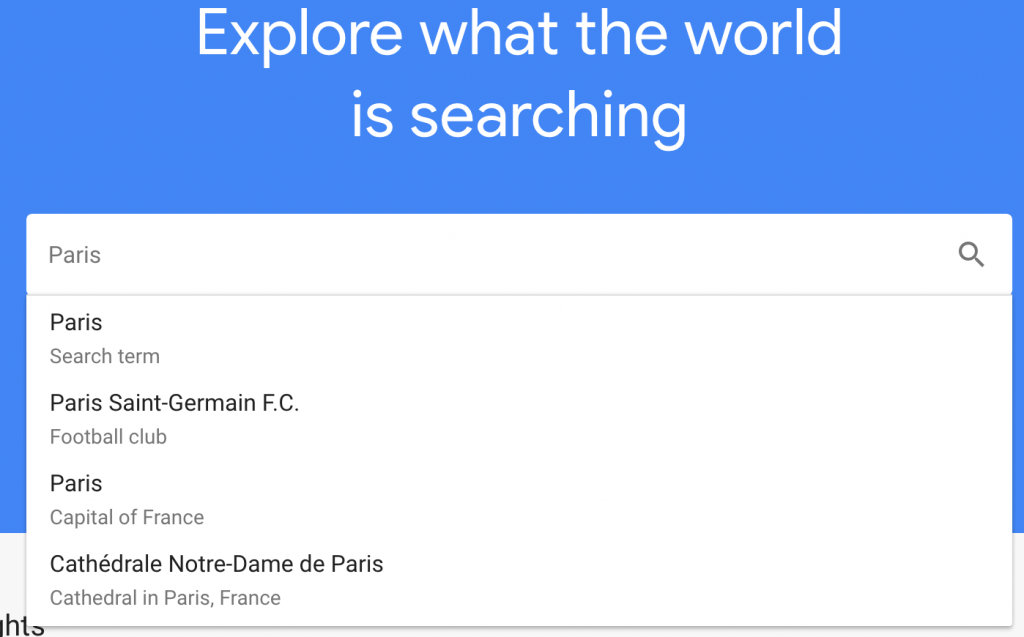
Tip 6: Do not panic if you are not a Topic!
Although I would love Dixon Jones to be seen as an Internet Marketing person, The fact that Google disagrees does not mean failure! I am confident in my own understanding. It isn’t perfect, but I consider myself relatively successful in my field. Just because Google has not caught up does not mean it isn’t so. However, it does focus my efforts a little. In addition, you can also target the “edge” between two topics. For example, “Paris” is a Football club and Gianluigi Buffon is a Football Goalkeeper. Creating content around these overlapping topics will create content that is more related to search terms than topics, but at the same time should increase your salience score for both topics.
3 Comments
Andy Kuiper · 25th December 2019 at 2:43 am
Very helpful Dixon 🙂
Patrick Leonard · 3rd January 2020 at 11:24 pm
Entities is an interesting topic I’m hoping to dive more into in 2020. Thanks for the overview!
Josh Bolstad · 5th January 2021 at 6:37 am
Thanks for some insights I never considered Dixon!